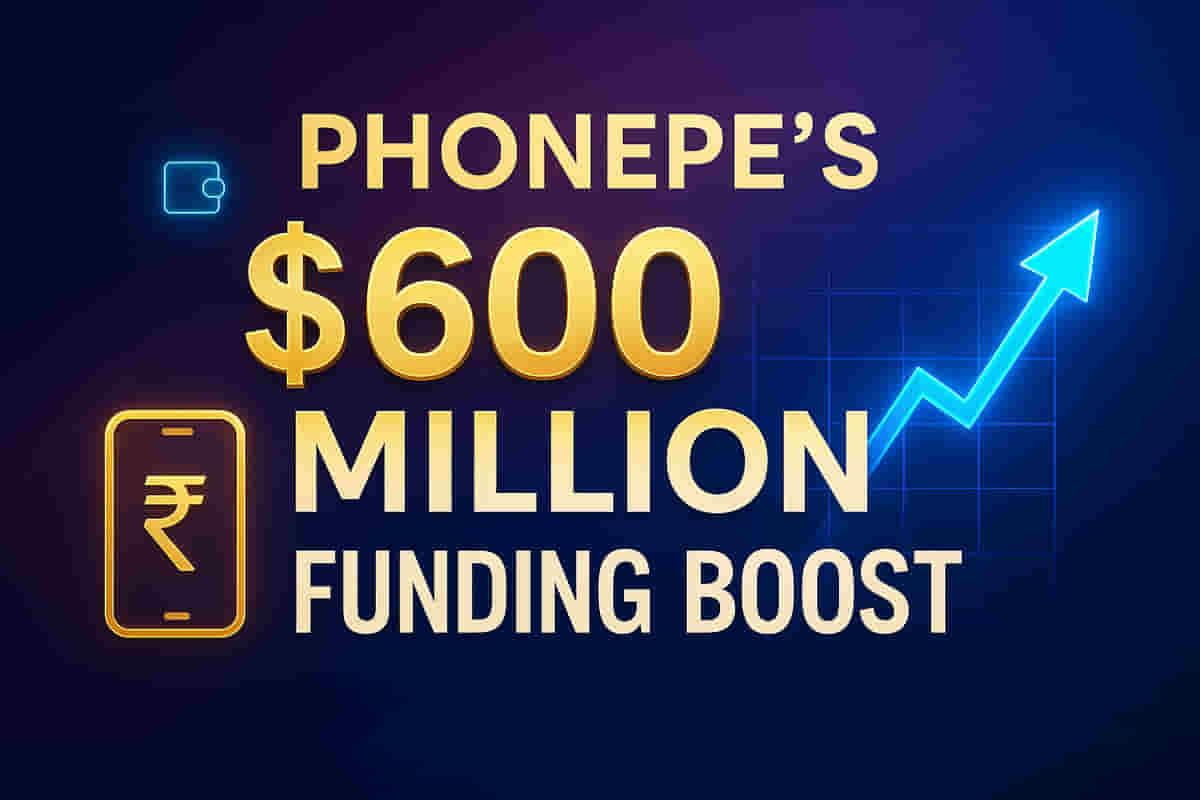PhonePe Secures $600 Million from General Atlantic for Employee ESOPs Ahead of IPO
Tech
|
30th October 2025, 5:34 AM

▶
Short Description :
Detailed Coverage :
PhonePe, the prominent fintech company preparing for its Initial Public Offering (IPO), has successfully raised $600 million (approximately INR 5,304 crore) from its existing investor, General Atlantic. This investment was structured as a secondary transaction, indicating that General Atlantic acquired shares from current stakeholders rather than PhonePe issuing new shares.
Following this transaction, General Atlantic's ownership stake in PhonePe has risen to about 9%, up from its previous 4.4%. A key objective of this funding is to enable PhonePe employees to exercise their stock options and fulfill associated tax responsibilities as the company moves closer to its public listing. Importantly, no founders or other existing shareholders sold their stakes in this deal.
This capital infusion comes at a critical juncture for PhonePe, shortly after it pre-filed its Draft Red Herring Prospectus (DRHP) with the Securities and Exchange Board of India (SEBI). The company is reportedly planning to raise around INR 12,000 crore ($1.35 billion) through its IPO, which may include an offer for sale. Additionally, PhonePe had recently initiated an ESOP buyback program valued between INR 700 crore and INR 800 crore, benefiting over 1,000 employees.
Impact This funding round reinforces PhonePe's financial standing and operational readiness for its upcoming IPO. It also demonstrates sustained confidence from major investors like General Atlantic in PhonePe's growth trajectory and market potential. Facilitating ESOP exercises is crucial for talent retention and aligning employee incentives with the company's public market debut. Impact Rating: 8/10
Difficult Terms: Secondary Transaction: A financial deal where existing shares held by current investors or founders are sold to new or existing investors, rather than the company issuing new shares. Stock Options (ESOPs): Rights granted to employees that allow them to purchase a specified number of company shares at a predetermined price (exercise price) within a certain period. Tax Obligations: The legal duty to pay taxes on income or profits generated, such as the tax liability that arises when employees exercise their stock options. Public Listing: The process by which a private company becomes a public company by offering its shares for sale to the general public on a stock exchange, typically through an IPO. Fintech Unicorn: A privately held startup company in the financial technology (fintech) sector that has achieved a valuation of over $1 billion. DRHP (Draft Red Herring Prospectus): A preliminary document filed with the securities regulator (like SEBI in India) that contains comprehensive details about a company and its proposed public offering before the IPO. Offer for Sale: A component of an IPO where existing shareholders (promoters, early investors) sell a portion of their stake to the public, allowing them to exit their investment without the company raising new capital. ESOP Buyback: A program initiated by a company to repurchase its own outstanding employee stock options from employees, often to provide liquidity or facilitate tax management.